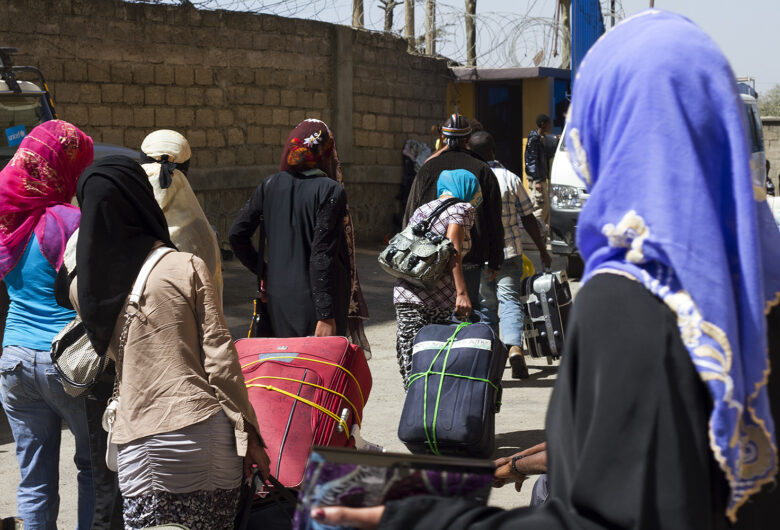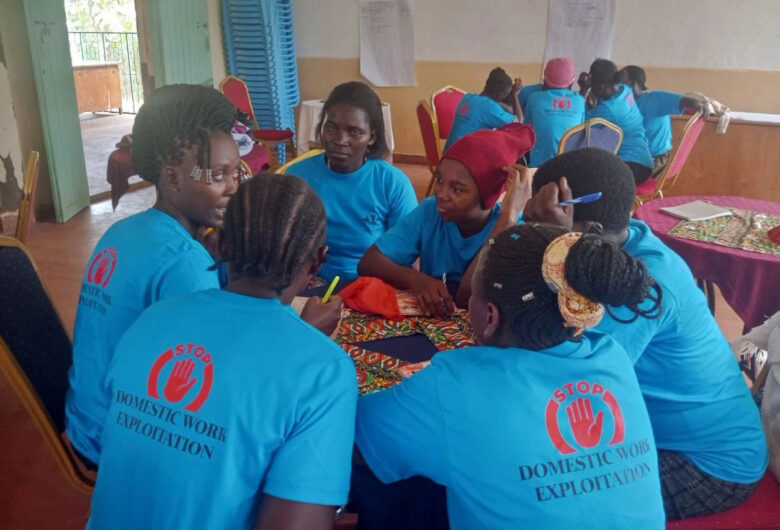Welcome to the Freedom Fund’s monthly bulletin designed to bring you new and compelling research from the global anti-slavery movement.
Approaches for measuring systems change in the anti-slavery movement
The Freedom Fund shares two parallel reports on approaches for measuring the effects of anti-slavery programmatic interventions. The first report identifies and provides examples for seven evidence-based intervention approaches that anti-slavery movement builders can adapt to effect change. The second report identifies key features of successful systems change measurement, including clearly outlining the theory of change at the design phase, openly discussing unintended outcomes with stakeholders external to the intervention, using mixed methods and engaging various actors within the targeted system, including survivors, in measuring change.
Refugees from Ukraine at risk of trafficking in persons for accommodation and earning
The UNODC examines trafficking and migrant smuggling risks among refugees from Ukraine. Based on a literature review and a survey of over 1,600 refugees and key informants in Germany, Poland, and Switzerland, the study found that 46% of respondents were unemployed, of whom 44% were unable to find work. Unaccompanied and separated children, internally displaced persons, those ineligible for temporary protection and the elderly are particularly vulnerable due to a lack of access to temporary protection schemes and accurate information. Ukrainian Roma people, disabled people, and non-Ukranians from outside the EU who fled Ukraine may also be at an elevated risk of exploitation or trafficking due to reduced access to services.
Modern slavery risks in ready-made garment production in Bangladesh
The University of Nottingham’s Rights Lab and GoodWeave International report on modern slavery and child labour risks in Bangladesh’s garment supply chains. Based on data from 1,974 workers across 20 industrial clusters, the study found that 31% of adults and 80% of minors work in subcontracted factories with higher risks of underpayment, safety issues and child labour. It also revealed that 99% of minors earn less than adults despite performing the same tasks or exceeding the legal five-hour work limit. The report urges the government, buyers, suppliers, NGOs and trade unions to enhance supply chain transparency, enforce human rights due diligence, ensure fair wages, combat child and forced labour and establish effective grievance mechanisms.
Wage dynamics among child domestic workers in Ethiopia
Population Council and the Freedom Fund explore factors influencing the arrangements between employers and child domestic workers in Ethiopia, especially regarding contracts, remuneration, mode of payment, savings and remittances. The study involved 1,288 self-identified girl domestic workers and found that 67% of domestic workers received their wages directly, while the remainder had their salary either withheld by the employer (28%) or sent to their family (5%). Younger girls (ages 12-14) were more likely to have their pay withheld than girls 15-17. Having a contract was associated with higher pay; however, only 27% of domestic workers had a contract, highlighting the importance of expanding and enforcing legal protections for domestic workers.
Occupational health and safety is fundamental to labour rights
A study led by University College London explores the 25-year campaign leading to the elevation of occupational health and safety (OHS) at the International Labour Organization in 2022. The study presents a labour diplomacy model outlining the critical role of union leaders in coordinating with global governance institutions, mobilising collective action and framing a narrative of collective grievance. The authors emphasise the importance of framing OHS as a fundamental labour right, which resonates with incumbents and external institutions to mobilise support and coalition partners.
Read on
A study led by the University of Surrey, UK, examines deceptive recruitment tactics and the use of digital platforms by cybercriminals to entrap and exploit victims in human trafficking within the cybercrime context.
A study led by the University of Bath, UK, documents the impact of unconditional cash transfers, casework and community support in strengthening economic resilience and reducing child engagement in dangerous work in a slum in Dhaka.
The University of Nottingham explores three key health and work-related threats posed by climate change through collaborative workshops with survivors of modern slavery.
Freedom Fund news
The Freedom Fund’s 2025-2030 strategic plan sets out ambitious objectives, doubling down on investments in frontline anti-slavery organisations and movements, driving systemic change and strengthening its role as a trusted funding partner. Learn more here.
Visit our Newsroom for more updates.
Research library
Visit our Slavery Research Library to access anti-slavery resources from across the globe.
Contact
The Slavery Research Bulletin is produced monthly by the Freedom Fund, a global fund with the sole aim of helping end modern slavery.
Research being featured in this bulletin does not equal endorsement by the Freedom Fund.
Click here to sign up to the Slavery Research Bulletin mailing list.
Photo credit: Josh Stride/Humanity United



